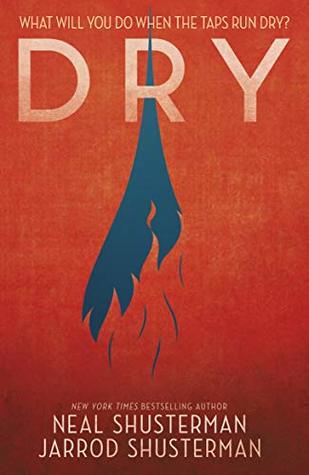More on this book
Community
Kindle Notes & Highlights
There’s a sort of primal hostility all around us, hidden by a veneer of suburban politeness.
There’s no radar image for a water crisis.
Because if there’s one thing I know about the news, it’s that it decides for most people – including the federal government – what is and what isn’t important. But the big news stations won’t give the Tap-Out the critical airtime it needs – not until there are images that are as dramatic as winds taking off roofs.
Helpless, plant manager Pete Flores watches the security screen, and realizes that, like electricity itself, this mob is a force as dangerous as that Japanese tsunami … and it may be his turn to go down with the ship.
As far as authority is concerned, calm people quietly dying is a lot easier to deal with than angry people fighting for their lives.
I feel a tight grip on my arm. It’s Garrett. He was closer to me than he was to Alyssa. I’m the closest port in his storm.
“The more we keep to civilization, the more likely that people will be civilized,” he says. Then adds, “At least for now.”
It reminds me of pictures I once saw in class of a destitute market in a war-torn country, where your only options were between canned beans or bread, and if you hesitated, you didn’t get either.
I follow his gaze to the spiteful ocean and direct all of my hate toward it. I can’t stand the way each crashing wave of undrinkable water mocks us.
It’s a powerful feeling – daring the universe to end you. We all know that sensation. It’s that feeling you get when you think for just a split second about steering into oncoming traffic.
the Call of the Void.
As a kid you idolize your parents. You think they’re perfect, because they’re the yardstick by which you measure the rest of the world, and yourself. Then as a teenager they just piss you off, because you realize that not only are they not perfect, but they may be even a little more screwed up than you. But there’s that moment when you realize they’re not superheroes, or villains. They’re painfully, unforgivably human. The question is, can you forgive them for being human anyway?
sometimes doing the right thing means doing the wrong thing first.
“You share nothing, or you share everything. There’s no in between.”
“God answers all prayers. And sometimes his answer is no.”
But my days of sitting still and hoping for the best are over. Now hope is a thing in constant motion, like a shark.
One’s vocabulary needs constant fertilizing or it will die,’”
You’ve got to do something you’ve never done, to have something you’ve never had.
“Do you know the concept of social triage? No? Because I do. In a mass emergency, you help the ones you can, and the ones you can’t help, you move out of the way.”
Things pass. Even big things. And when they’re far behind us, they don’t look big anymore.
I feel guilty about it, but I’ll live with the guilt. If that makes me a bad person, I’ll care on a different day.
When we’ve lost the strength to save ourselves, we somehow find the strength to save each other.
“I love you, Garrett,” I tell him, and he echoes it back. It’s the thing brothers and sisters never say to each other until they find themselves in a moment where nothing else can possibly be said.
The box I lived in was simply too small to think that far out if it.
Wasn’t it Jacqui who told us the human body is sixty percent water? Well, now I know what the rest is. The rest is dust, the rest is ash, it’s sorrow and it’s grief… But above all that, in spite of all that, binding us together … is hope. And joy. And a wellspring of all the things that still might be.


